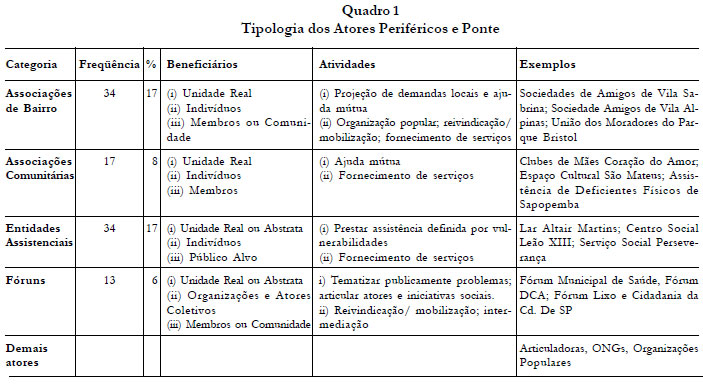Based on network analysis, this article identifies the actors in peripheral positions within São Paulo civil society and examines their different logics of performance and their relational or interactional strategies towards other actors. Findings of a survey with 202 civil organizations in the city of São Paulo show that community and neighborhood associations keep the most peripheral positions, preceded by service non-profits and forums, of middle centrality. Those actors are characterized by the superposition of structural disadvantages. However, this article shows that organizations occupy peripheral and middle centrality positions for distinct reasons and fulfill different functional vocations. It also shows that civil organizations deal with their peripheral and intermediate condition in different ways, even reducing considerably the relational constraints to their capacity for action and decision by establishing selective ties with organizations in highly central positions. Therefore, the article goes beyond the mere identification of positional hierarchies, developing nuanced formulations about the modus operandi of the organizations examined.
Network analysis; Civil society; São Paulo; Peripheral civil organizations




